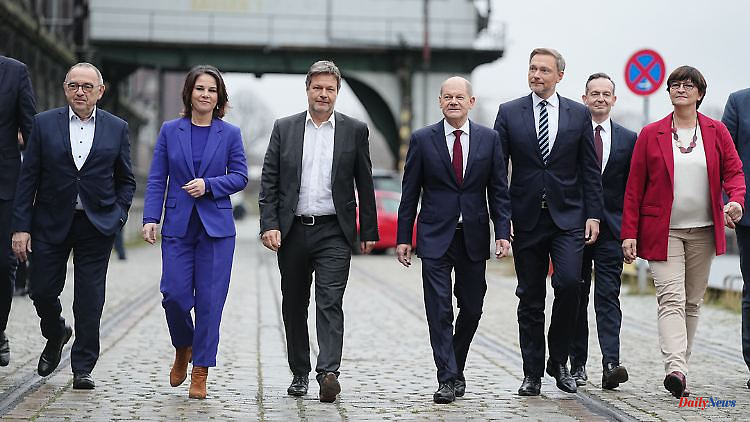The climate check of the German environmental aid is sad for the federal ministries: All ministries are heated with fossil fuels, only three are in a good energetic condition. The ministries cannot meet their own standards. There is a will to improve, but more will probably be needed.
Only three out of 15 federal ministries are in a demonstrably good energy condition. This emerges from the climate check of the German Environmental Aid (DUH). Accordingly, the federal government does not adhere to its own legally binding requirements from the energy efficiency decree for climate protection in the building sector. It stipulates that the federal government should act as a role model in the building sector. After all: According to the evaluation, things are looking better in the education, environment and agriculture ministries. Improvement for the other ministries, on the other hand, is hardly in sight. Only the Ministry of Health is currently being renovated. Building Minister Klara Geywitz and Economics Minister Robert Habeck have presented a renovation plan for their houses.
Particularly alarming: All 15 Berlin ministry buildings are to be heated with fossil fuels – 64 percent with natural gas and 17 percent with district heating. In Berlin, the latter consists mainly of natural gas and hard coal and is therefore, unsurprisingly, not climate-friendly. Although the Ministry of Education obtains heating power mainly from renewable sources, peak loads are also covered there with gas heating. According to the requirements certificate, four ministries are also in an insufficient energy state. For six of the ministries, no statement at all could be made on the energy situation, as no corresponding energy requirement certificates were available.
According to the efficiency decree, these should have been available and publicly displayed for all federal properties at the end of February. When asked by the DUH, however, only three of the six ministries responded - the Ministry of Justice and the Federal Ministry for Digital Affairs and Transport - and sent a consumption card instead of the requested requirement card. Both ministries do not seem to be aware of the difference between the energy certificates. While the requirement certificate enables statements to be made about the building envelope and the type of heating, the consumption certificate only reflects the energy consumption of a building. A third response, from the Ministry of Building, merely referred to the Federal Agency for Real Estate Tasks.
In a press release, Barbara Metz, the federal director of the DUH, emphasizes that the federal government still has a lot to do. All ministries have a lot of catching up to do, both in terms of sustainable heat supply and energy-related refurbishment. This applies not only to the offices of the ministers, but to all public buildings such as schools, daycare centers or care facilities. "We call for a transparency register that makes the energetic condition and heat supply of all public buildings visible to citizens. After all, they are the ones who use their tax money to finance the operation of the energetically inefficient buildings," says Metz.
From the point of view of the environmental and consumer protection association, the miserable performance of the federal ministries in the DUH climate check is all the more unacceptable because there are sufficient alternatives for a renewable heat supply. According to figures from the Fraunhofer Institute for Energy Economics and Energy System Technology and calculations by the DUH, the heating requirements of the ministries could be covered 18 times over with the thermal output of all Berlin’s watercourses.
"It is a tragedy to watch how new district heating lines are laid in Berlin, while renewable heat flows right in front of the front door. Instead of putting all its energy into using the flow heat, the Berlin heat supplier Vattenfall wants to calculate its climate balance by burning wood and is clearly on the wrong track. Clear signals are now needed from the federal government to promote truly renewable heat in Berlin," says Paula Brandmeyer, Deputy Head of Energy and Climate Protection at DUH.
The federal government is also lagging behind in a Europe-wide comparison: It recommends a renovation rate of 1 to 1.7 percent for existing federal buildings between 2022 and 2024, while the EU specifies 3 percent. In order to end the climate protection standstill in the building sector, the DUH filed a lawsuit against the federal government in March 2021 before the Berlin-Brandenburg Higher Administrative Court. This is supplemented by lawsuits against the inadequate immediate climate protection programs in the building sector.












